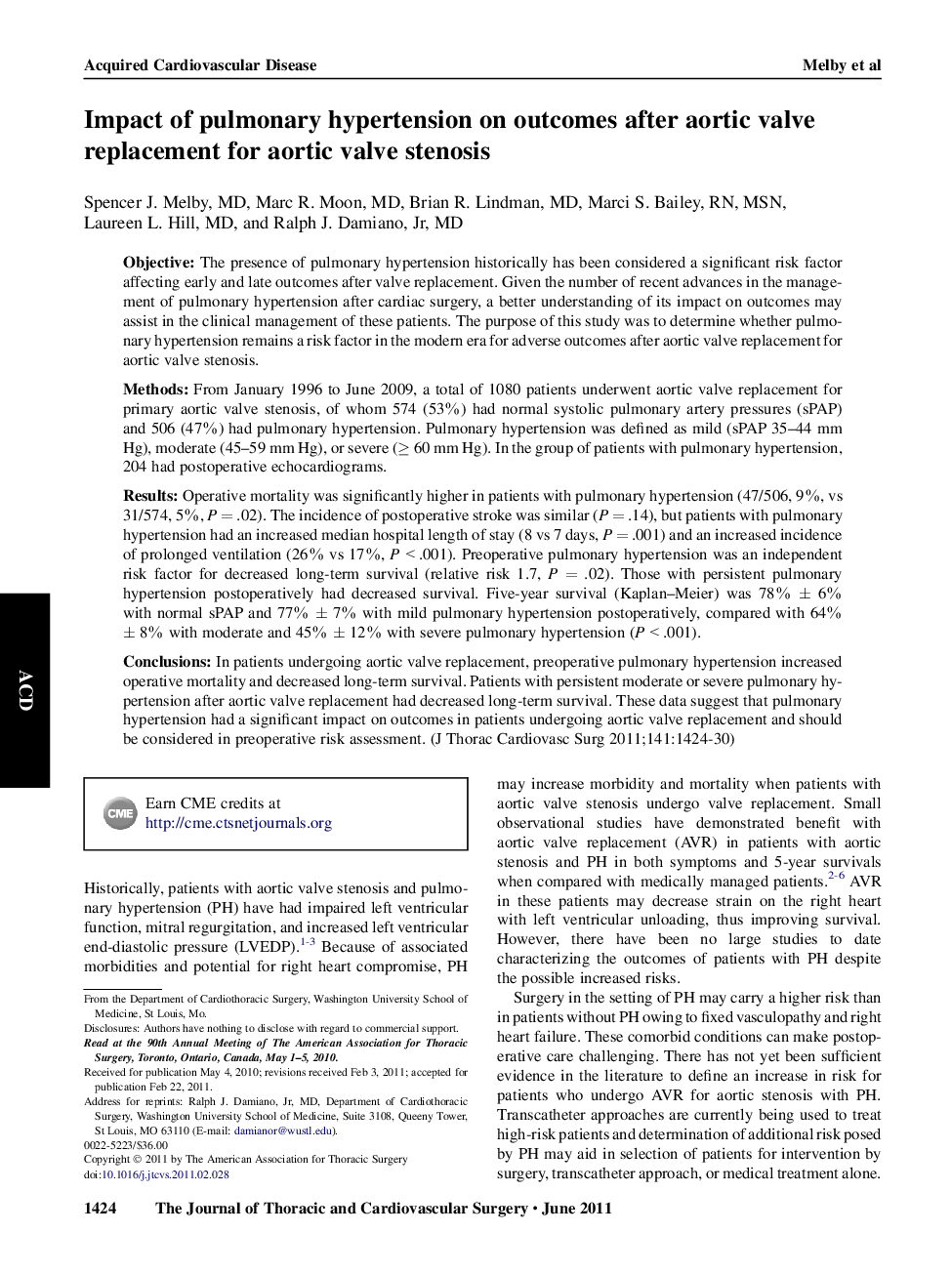| Article ID | Journal | Published Year | Pages | File Type |
|---|---|---|---|---|
| 2982960 | The Journal of Thoracic and Cardiovascular Surgery | 2011 | 7 Pages |
ObjectiveThe presence of pulmonary hypertension historically has been considered a significant risk factor affecting early and late outcomes after valve replacement. Given the number of recent advances in the management of pulmonary hypertension after cardiac surgery, a better understanding of its impact on outcomes may assist in the clinical management of these patients. The purpose of this study was to determine whether pulmonary hypertension remains a risk factor in the modern era for adverse outcomes after aortic valve replacement for aortic valve stenosis.MethodsFrom January 1996 to June 2009, a total of 1080 patients underwent aortic valve replacement for primary aortic valve stenosis, of whom 574 (53%) had normal systolic pulmonary artery pressures (sPAP) and 506 (47%) had pulmonary hypertension. Pulmonary hypertension was defined as mild (sPAP 35–44 mm Hg), moderate (45–59 mm Hg), or severe (≥ 60 mm Hg). In the group of patients with pulmonary hypertension, 204 had postoperative echocardiograms.ResultsOperative mortality was significantly higher in patients with pulmonary hypertension (47/506, 9%, vs 31/574, 5%, P = .02). The incidence of postoperative stroke was similar (P = .14), but patients with pulmonary hypertension had an increased median hospital length of stay (8 vs 7 days, P = .001) and an increased incidence of prolonged ventilation (26% vs 17%, P < .001). Preoperative pulmonary hypertension was an independent risk factor for decreased long-term survival (relative risk 1.7, P = .02). Those with persistent pulmonary hypertension postoperatively had decreased survival. Five-year survival (Kaplan–Meier) was 78% ± 6% with normal sPAP and 77% ± 7% with mild pulmonary hypertension postoperatively, compared with 64% ± 8% with moderate and 45% ± 12% with severe pulmonary hypertension (P < .001).ConclusionsIn patients undergoing aortic valve replacement, preoperative pulmonary hypertension increased operative mortality and decreased long-term survival. Patients with persistent moderate or severe pulmonary hypertension after aortic valve replacement had decreased long-term survival. These data suggest that pulmonary hypertension had a significant impact on outcomes in patients undergoing aortic valve replacement and should be considered in preoperative risk assessment.
